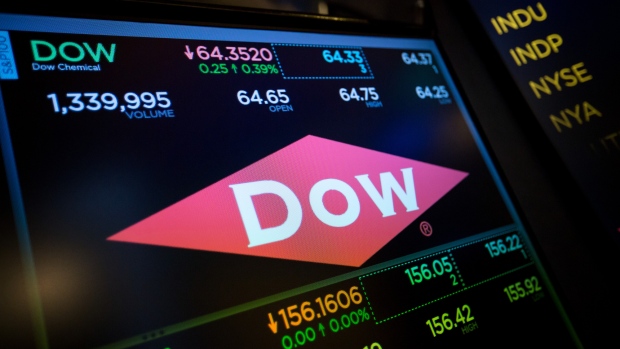May 7, 2020
Dow said to explore sales of its ports, storage, rail businesses
, Bloomberg News

Dow Inc. is exploring the sale of its ports on the U.S. Gulf Coast and six railway hubs as it refocuses on chemicals, according to people with knowledge of the matter.
The company has tapped a financial adviser to solicit prospective suitors, said one of the people, who requested anonymity because the talks are private. A representative for Midland, Michigan-based Dow declined comment.
The potential divestitures echo moves across the industry to focus on manufacturing chemicals efficiently while hiving off responsibility for running the ground infrastructure, from power supplies to transportation. Macquarie Infrastructure & Real Assets last year paid Bayer AG and Lanxess AG more than US$3.5 billion to take over their chemical park operations, gaining a steady income from long-term service and supply contracts with the companies on site.
Dow’s marine and storage operations, known as its Mars unit, includes 136 chemical and liquid hyrdocarbon tanks with 200 million gallons (760 million litres) of capacity, as well as 11 marine docks, according to one of the people. The terminals — including ones in Freeport, Texas, and St. Charles and Plaquemine in Louisiana — are located near railway lines operated by Union Pacific Corp. Open land and unused tank capacity may also be included in a transaction, the person said.
More than 70 per cent of Mars revenue last year came from Dow, and the company would seek a 25-year contract with the buyer for marine and terminal services, one of the people said. The business also has third-party customers, most which have a minimum of 15 years remaining on their leases.
For the potential rail divestiture, Dow wants a similar long-term partner for infrastructure critical to its manufacturing operations at six sites in North America, another person briefed on the matter said. The plants in Baton Rouge and New Orleans, Louisiana; in Houston and Corpus Christi, Texas; and in Alberta, Canada, at Calgary and Edmonton, represent the bulk of Dow’s olefins and polyethlene production capacity.
Dow has accounted for more than 75 per cent of its rail business’s revenue, which had a compound annual growth rate of about seven per cent over the last three years, the person said. The company has offered to sign a 25-year agreement with potential suitors. Other existing contracts have roughly 12 years remaining, on average.
The company, led by Chief Executive Officer James Fitterling, has seen its stock tumble 42 per cent this year through Wednesday, compared with a 12-per-cent drop for the S&P 500 Index. That left Dow with a market capitalization of about US$24 billion.




